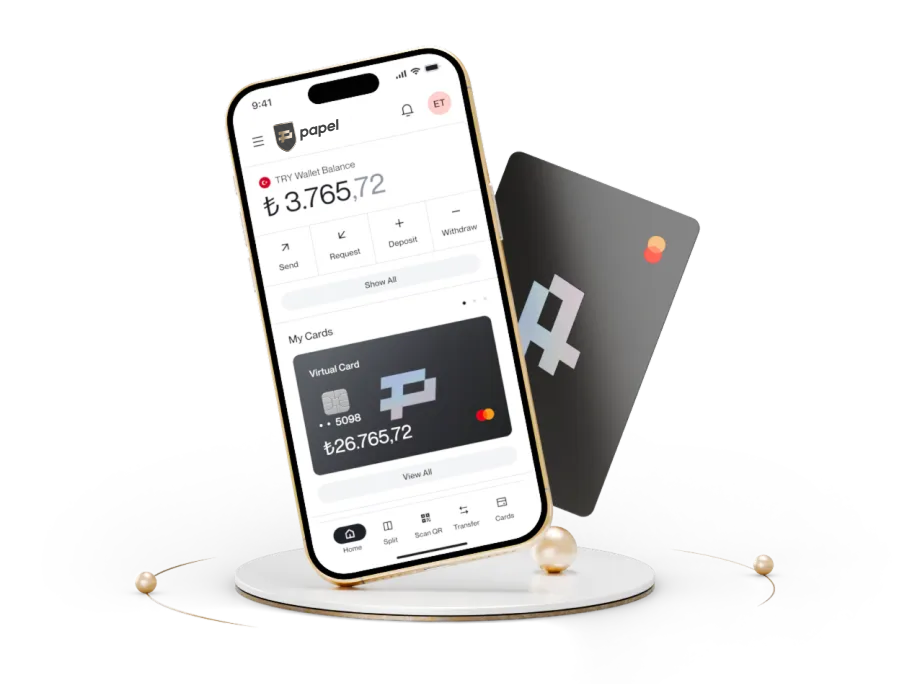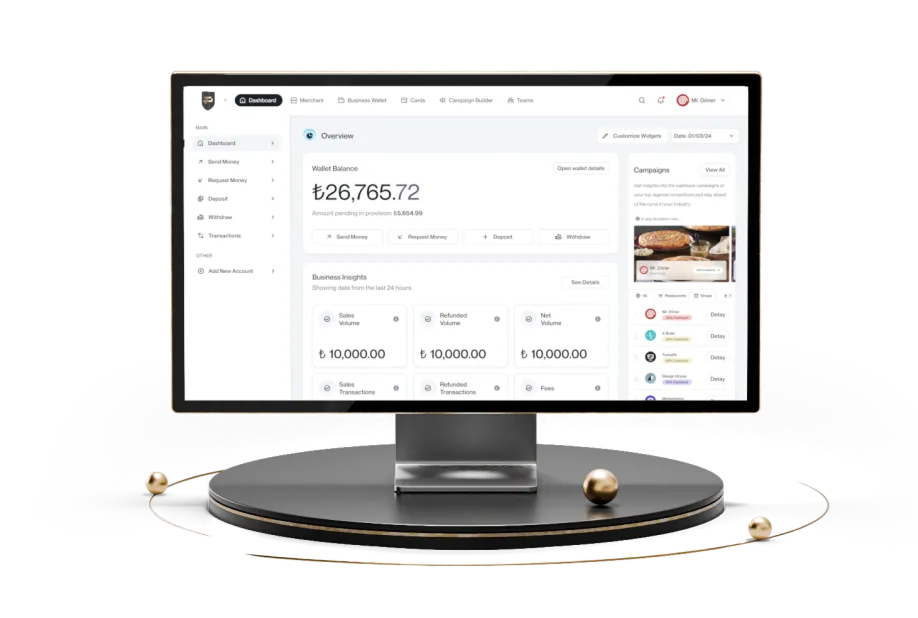POS devices simplify business payment processes while introducing financial dynamics such as cash flow management and commission rates. In this context, value dates and commission rates emerge as critical factors. The value date determines when funds are credited to a business’s account, and the commission rates paid per transaction can significantly affect profitability and financial sustainability.
Papel Blog cares about you and your business. To help you make informed decisions based on your needs, we’ve compiled everything you need to know about value dates and commission rates in this article.
What is a Value Date?
Derived from the French word “valeur,” meaning “value,” the term value date is used in English to denote when a financial transaction becomes valid. Initially used in Europe’s financial hubs and gradually adopted worldwide, this concept historically aimed to standardize transaction finalization dates and interest calculations. Today, the value date plays a critical role in modern financial systems for banks, companies, and investors in managing cash flow and calculating interest.
The value date, commonly used in financial transactions, refers to the official date a transaction is executed and becomes valid. To explain further, when a bank transfer is made, the date the money is sent and the date it is credited to the recipient’s account may differ. When the transaction officially becomes valid, the latter date is referred to as the value date.
The receipt's value date indicates when the transaction becomes officially valid in banking transactions. For instance, when a money transfer is completed, the date the funds will be credited to the other party’s account is typically the value date. This date is crucial as it affects both the finalization of the transaction and any potential interest calculations. Receipts often display a value date that may differ from the transaction date. Accurately determining the value date is essential to avoid financial planning and management errors.
Types of Value Dates
Value dates, crucial in banking and the financial sector, are generally divided into two types: short and long. Other types, such as spot and forward value dates, are also known.
Short Value Date
A short value date means the transaction becomes valid shortly after execution. For example, bank transfers or credit card payments often have short value dates. The key feature of this type is that the validity date follows the transaction date immediately, typically within one business day. The rapid cash flow allows quicker initiation of interest accrual or debt calculations, making the financial structure more predictable. This type of value date is particularly favored for individual transactions and daily financial movements like money transfers.
Long Value Date
An extended value date refers to transactions requiring a certain waiting period before becoming valid. This period often ranges from 3 to 7 business days. Long value dates are frequently encountered in POS transactions and facilitate broader cash flow planning. They also allow companies to organize payment schedules more comprehensively, reducing short-term financial pressure. Long-value dates are ideal for managing cash flow and are commonly used in corporate transactions and large-scale commercial activities.
Spot Value Date
A spot value date refers to a financial transaction becoming valid on the same day it is executed. The value date aligns with the transaction date, eliminating delays or additional interest considerations. This type is ideal for urgent transactions or those requiring immediate results, such as currency exchanges, gold trades, and stock purchases. Spot value dates are also suitable for money transfers and some banking transactions.
Forward Value Date
A forward value date refers to a value date that occurs a certain period after the transaction date. This could mean 3-7 business days, for example. This application is typically used for managing cash flow or planning commercial transactions. For instance, if a company sells through a deferred POS system, the proceeds may be credited to its account after a set period (e.g., five business days). During this time, the bank manages the cash flow. Forward value dates are commonly used in term deposits, forward markets, and POS transactions, making them suitable for long-term financial planning and management.
How is the Value Date Calculated?
Calculating a value date involves determining when a financial transaction becomes valid. This date can vary depending on the type of transaction and the financial institution’s policies. Typically, there is a one- or several-business-day gap between the transaction and value dates.
For example, when opening a deposit account, the date the deposited funds start earning interest is the value date. Accurate value date calculation is essential for managing cash flow and determining interest earnings. To calculate the value date, the following steps are typically followed:
1. Determine the transaction date.
2. Consider the waiting period applied by the bank or financial institution.
3. Account for holidays and weekends, as these are excluded from value date calculations based on business days.
For instance, if money is deposited into a term deposit account on January 3, the value date is typically the next business day, January 4. However, if January 4 is a holiday, the value date shifts to the next business day, January 5.
Applications of Value Dates
Value dates are applied across various areas, such as banking, stock exchanges, POS systems, and other financial transactions. They play a crucial role in determining the timing of financial transactions and managing cash flow. Here are the key application areas of value dates:
Banking Sector
In banking, value dates are essential for transactions such as money transfers, deposit accounts, and credit card payments. For example, the date on which funds in a deposit account start earning interest is the value date. Similarly, value date applications are typical in currency and gold transactions.
Stock Exchange and Securities
In stock trading, the value date determines the settlement date of a transaction. In Turkey, stock transactions typically have a T+2 value date, meaning settlement occurs two business days after the transaction date. This period allows investors to plan their cash flow and portfolio management.
POS Systems
In sales made through POS devices, the value date determines when the collected amount is credited to the business’s account. This period, often 1-3 business days, can vary depending on banks and agreements. As the value date directly affects cash flow and financial planning, it is essential to consider POS agreements.
The Relationship Between Value Dates and Commission Rates
In sales via POS devices, banks or payment service providers charge a percentage of the transaction amount as a commission. Value dates and commission rates have a direct inverse relationship, impacting businesses’ cash flow and profitability.
For instance, businesses opting for a shorter value date (e.g., next-day payment) may face higher commission rates. Conversely, those accepting longer value dates (e.g., 30 days) may benefit from lower commission rates. This balance is shaped by banks’ liquidity management and risk assessments. For example, a bank might charge a 2-5% commission for businesses requesting next-day payment. And for companies accepting a 7-day payment period, the commission could be as low as 1.5%.
While short-value dates allow quicker access to cash, they increase costs due to higher commission rates. Long-value dates reduce costs but may delay cash flow. Businesses must find the optimal balance based on their financial needs and cash flow requirements.
Frequently Asked Questions
What is a value date?
A value date refers to the time interval between the transaction date and the date it becomes valid. It is often used as the starting point for interest calculations.
What is the relationship between value dates and commission rates?
Value dates and commission rates are inversely related. As the value date period shortens, commission rates increase; as it lengthens, commission rates decrease.
What is Papel’s value date?
Papel’s value date varies based on business size and capacity. Contact our sales team to discover offers tailored to your business.
What is Papel’s Virtual POS commission rate?
Papel’s POS commission rate depends on your business’s size and capacity. Fill out the form to learn about commission rates specific to your company and get a quote.
Sources: 1, 2.




